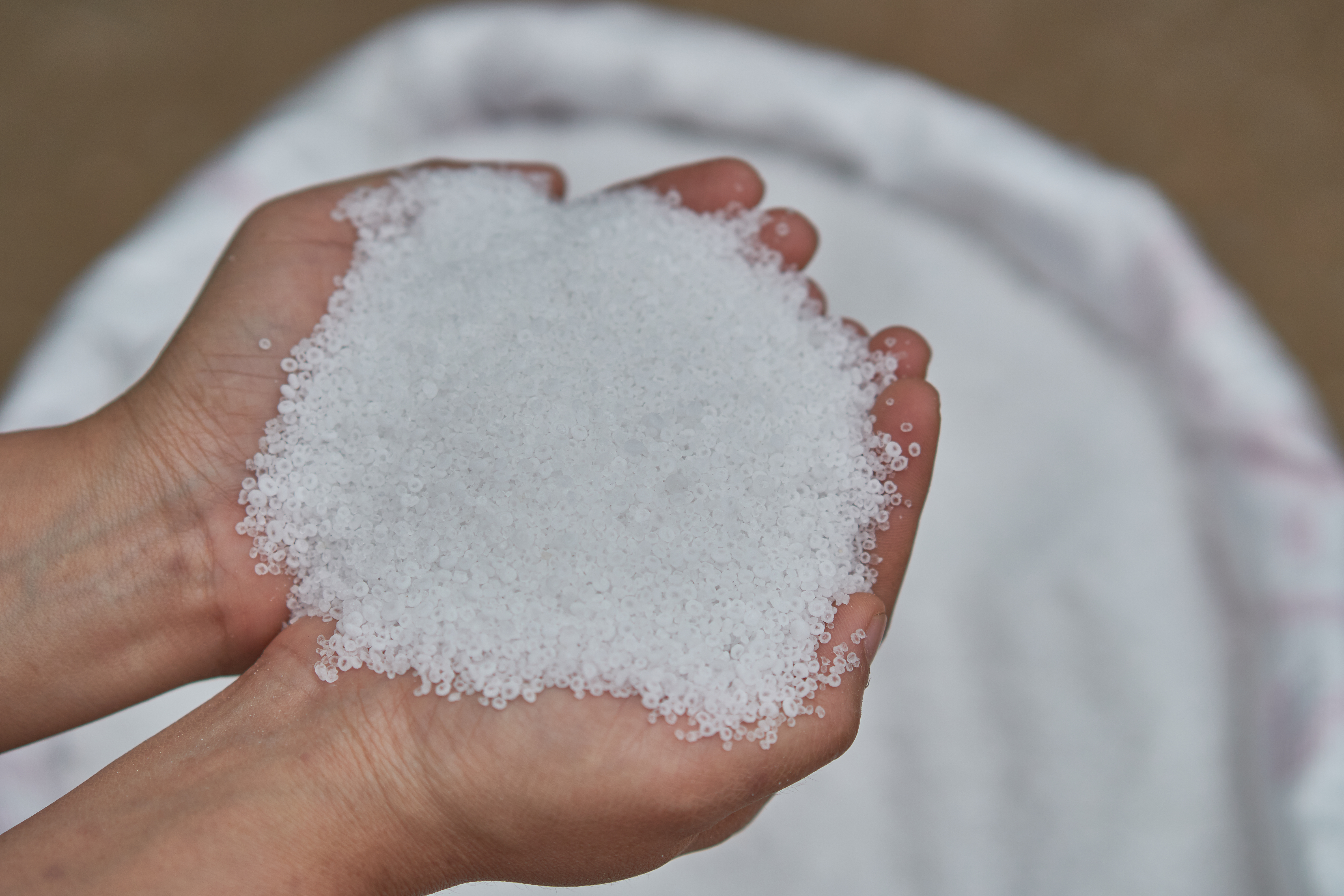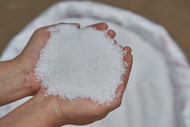Calcium Chloride (CaCl2) in Your Drink and on Our Roads?
By on Nov 24th 2020

Shouldn’t we be concerned that the ingredient Calcium Chloride we see listed on the back of a water bottle is also the same thing we buy to use as an ice melt on frozen walkways in the winter? Well, there is no need to fear. This is actually a good thing. Calcium chloride is a salt and like other salts are naturally found in water and do a lot of good; they are called electrolytes. They are found in natural spring water and freshwater as it dissolves some salts from its surroundings. In-fact pure water would actually do more harm than good. You need salts in your body to be able to sweat and function properly.
Besides distilled or “Pure Water” not having any taste and is kind of flat, drinking pure distilled water without CaCl 2 or other electrolytes is not good for you and could cause water poisoning. As you sweat while working out, water naturally pulls out some minerals and nutrients from your cell that your body needs, which could be bad if not replenished. But no need to fear, most natural water sources contain these nutrients. In the case of bottled beverages, calcium chloride is commonly added to sports drinks to replenish electrolytes lost by athletes while they are sweating.
Calcium chloride is very versatile in the kitchen as well and is used when making things like cheese and pickles. Some of you might have seen calcium chloride in your home kitchen by one of its other names; Pickle Crisp. Pickle crisp is used to give pickles their unique crunch. It is also used to great affect in low sodium foods. It is very similar to regular salt, but it doesn’t contain sodium which can be an advantage for people on low sodium diets. Calcium chloride is commonly added to beers and other beverages to add calcium and chloride ions where needed. The chloride ion is believed to adjust the beverage’s fullness, sweetness, or mellowness within the profile.
Calcium Chloride vs. Rock Salt on Roads?

There are plenty of practical uses for calcium chloride besides its common role as a safe and effective food additive. Calcium chloride is commonly used for deicing and for dust control of roads. CaCl 2 is an effective deicer and is better than regular sodium chloride (regular rock salt) because it is effective to temperatures as low as -52°C (-61°F). This is far superior to rock salt; rock salt can only melt ice up to -21°C and (-6°F). That is why it is sometimes used on roads when it is going to be super cold.
Calcium chloride is used for dust control because of its ability to absorb moisture from the air and hold it. Calcium chloride can absorb twice its weight in water, this is helpful as the moist surface of the road keeps fine particles from being kicked up creating dust. The two main reasons to control dust on unpaved roads are to prevent people from inhaling the dust which could cause lung damage or other serious problems and to extend the life of the equipment that travel on these dusty roads. A rock quarry is a great example where calcium chloride is essential to the health of both personnel and equipment. Calcium chloride is generally made into a liquid brine and sprayed onto the unpaved roads, but it can also be effective when used in its dry form.
Other Uses
Additionally, calcium chloride is also used to increase the strength of the concrete in cold weather and to reduce the set time. CaCl 2 is used in pools to prevent damage to exposed metal parts by altering the water hardness, and as fertilizer when a plant requires more calcium or chloride in the soil. CaCl 2 also can act as a desiccator and remove moisture from the air. For this very reason, it is commonly used in dehumidifier products.
At Ingredi.com, we sell 2 types of calcium chloride:
Calcium Chloride Pellets, Briners Choice | 50 lbs Bag
Calcium Chloride Anhydrous FCC, Caltac | 110 lbs Drum
Sources:
https://www.peterschemical.com/dust-control-and-base-stabilization-with-liquidow-calcium-chloride/
https://web.archive.org/web/20071029131300/http://www.usroads.com/journals/rmej/9806/rm980603.htm
https://pubchem.ncbi.nlm.nih.gov/compound/Calcium-dichloride#section=Accidental-Release-Measures
https://beerandbrewing.com/dictionary/9VSBPHx1LW
https://foodadditives.net/firming-agent/calcium-chloride/
https://www.healthline.com/nutrition/sports-drinks#bottom-line
https://www.peterschemical.com/calcium-chloride-the-essential-element-for-better-roads/






